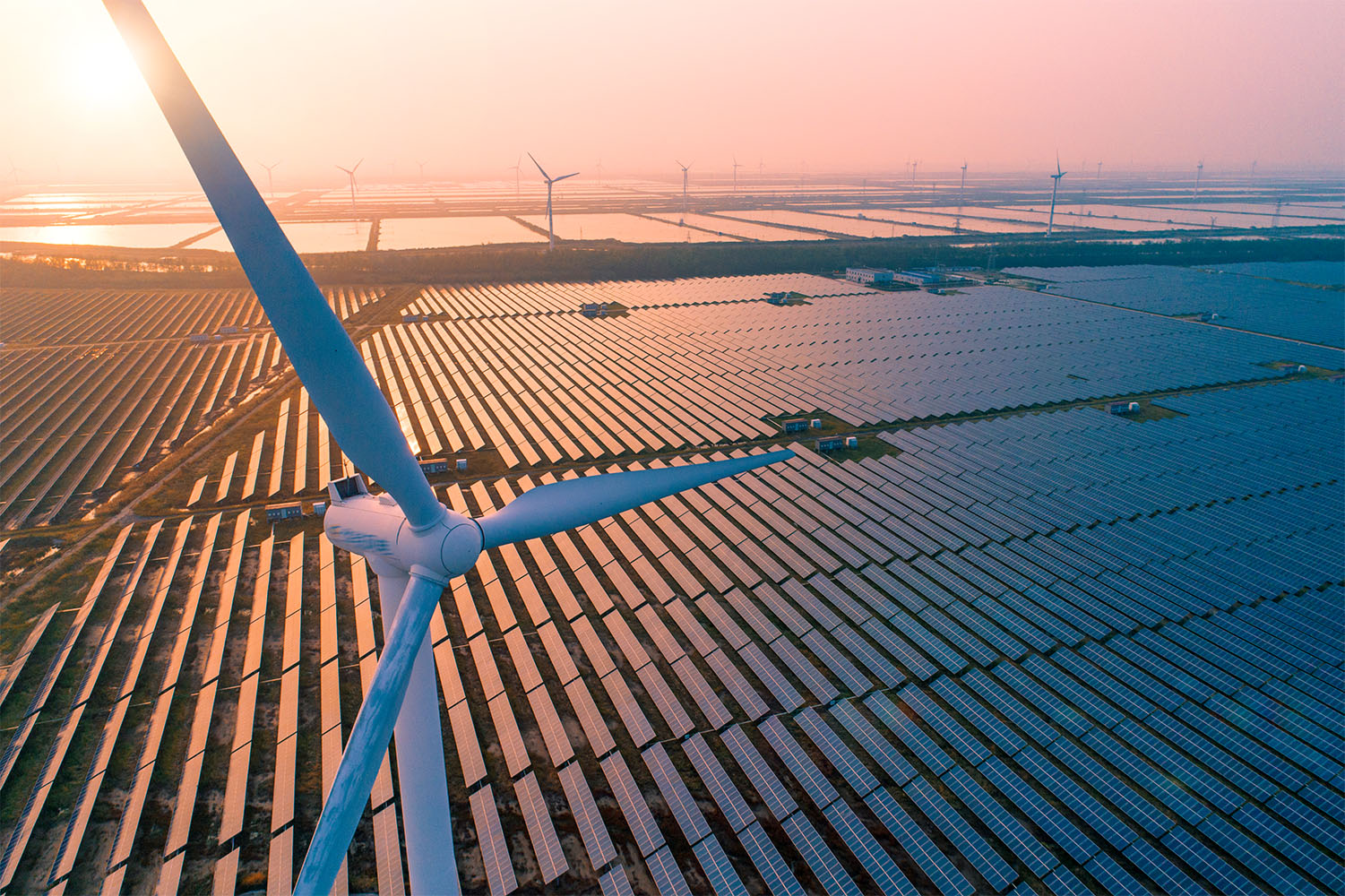The Energy Transition | Wind sector flying on tailwind after CfD funding boost
Published on 20th November 2023
Welcome to our top picks of the latest energy regulatory and market developments in the UK's transition to net zero

This week we look at the government's updated pricing strategy for the next CfD round, Ofgem's plan to clear "zombie projects" and more.
Wind sector welcomes boost in offshore wind subsidies
The UK government has announced a significant increase in the maximum prices available for offshore wind projects in the next Contracts for Difference (CfD) round. The CfD scheme, first introduced almost a decade ago, aims to incentivise investment and development in renewable energy by providing a guaranteed price for energy generated by qualifying projects. Since its establishment, the scheme has awarded contracts for approximately 30GW of renewable energy capacity across different technologies and projects.
As we previously reported, no offshore wind bids were submitted in the most recent CfD auction round as the strike price of £44/MWh was deemed too low given the serious challenges facing the sector in costs, delays and supply chain issues. The government has now decided to significantly increase the maximum strike prices on offer for Allocation Round 6 (AR6) which will take place next year. The maximum strike price for offshore wind projects has increased by 66%, from £44/MWh to £73/MWh, and 52% for floating offshore wind projects, from £116/MWh to £176/MWh. The maximum strike price for solar also increased by 30%, from £47/MWh to £61/MWh.
AR6 will also see a separate funding pot for offshore wind to encourage participation. The government has stated that offshore wind is a key part of its net zero strategy. The UK already has the world's five largest offshore wind farms, and the government hopes that capacity will increase to 50GW by 2030.
The announcements have been welcomed by the industry. Matthieu Hue, CEO of EDF Renewables UK, commented that, "the Contract for Difference is fundamentally a good mechanism, and a sustainable administrative strike price will drive investor confidence, economic growth and lower electricity bills."
New policy to allow the termination of "zombie projects" causing delays in the grid connection queue
Ofgem has announced the adoption of a new policy for electricity gird connections, signalling a significant move away from the current 'first-come, first-served' approach. The current policies have come under strong criticism (as we previously reported on) for creating long grid connection queues and preventing viable projects from connecting to the grid. Ofgem estimates that the current generation potential of queued projects is almost 400GW, which is well in excess of what is required to power the whole UK energy system. The inability to connect to the grid is a limiting factor in many renewable energy projects and is causing delays in the UK's transition to a decarbonised energy system.
The reforms will give the National Grid Electricity Systems Operator the power to introduce milestones into connection agreements and terminate any projects that are failing to hit these milestones. Ofgem hopes that the introduction of these powers will clear the grid connection queue of stalled "zombie-projects", many of which are yet to secure planning permission or funding arrangements and allow "shovel-ready" projects which are ready to connect to progress. The management milestones will be inserted into every transmission grid connection contract that has a post-November 2025 connection date.
Eleanor Warburton, Ofgem’s Deputy Director for Institutions for Net Zero Energy Systems Management and Security, said the announcement was "a big step towards phasing out the first-come first-served queuing system. We want new power on the grid as quickly as possible, so if you're ready, you can connect sooner. If you're not ready and are blocking the progress of others, you'll be removed - you can't sit on the queue with no consequences."
These changes will apply to both existing and future grid connection agreements for high-voltage transmission lines and will come in the form of a code modification. The announcement comes in advance of a highly anticipated joint connections action plan, which is due to be published by Ofgem and the Department of Energy Security and Net Zero next month.
No mutualisation of missed Renewables Obligation payments for 2022-23
Ofgem has this week confirmed that the mutualisation of missed Renewable Obligation (RO) payments will not take place for the first time in six years.
During the 2022-23 obligation year, it has been reported that four unnamed energy suppliers fell short of their payment obligations ahead of the 1 September deadline. This has resulted in total mis-payments of over £7.2 million in buy-out funds.
The minimum threshold for the mutualisation of missed RO payments is set at £65.8 million for England and Wales, and £1.5 million for Scotland, neither of which have been met in 2022-23..a Ofgem has therefore confirmed that mutualisation of these payments shall not take place. This is in contrast to the recent history of RO mutualisation. 2022 saw mutualisation confirmed for the fifth successive year as 36 retailers left a £136 million shortfall in RO buyout funds.
Crown Estate plans to unlock 4GW of additional capacity from offshore wind
The Crown Estate has announced plans to unlock the generation of up to an additional 4GW from several offshore wind farm projects currently in development. The announcement follows requests from the projects' developers who believe additional capacity can be generated from the areas of seabed over which they hold rights, due to vast improvements in offshore wind technology since their leases were awarded.
The seven projects which could benefit from the additional capacity were awarded their rights under either The Crown Estate's Offshore Wind Leasing Round 3, or The Crown Estate's 2017 Offshore Wind Extensions programme. These are:
- Awel y Môr.
- Dudgeon Extension.
- Sheringham Shoal Extension.
- North Falls.
- Five Estuaries.
- Rampion 2.
- Dogger Bank D.
Gus Jaspert, managing director (marine) at The Crown Estate highlighted that the plans "make use of seabed areas that have been previously granted rights, are not being fully utilised, and may have limited options for alternative uses". He described the announcement as "a process to examine whether this additional capacity can be made available in a way which remains true to our commitment to nature and biodiversity".
The Crown Estate will now review the developers' requests and consider the economic and clean energy potential of the projects in line with its commitments to nature and biodiversity, with an aim to make a determination within 12 months.
Ofgem green lights regional energy planning roles to speed up net zero transition
Ofgem announced on 15 November that it will decentralise energy planning roles and create a regional planning system designed to improve local energy planning and accelerate the UK's transition to net zero.
The regulator has tasked a new body, the Future System Operator (FSO), to implement up to 13 Regional Energy Strategic Planners to bring together the planning for electricity and gas systems. These have been set up to deal directly with local stakeholders and local government, and must consider both national targets to reach net zero and local needs. It is hoped that this will improve understanding of local project requirements and attract more investment.
Ofgem will also introduce a new market facilitator function responsible for market coordination, implementation, monitoring, and strategic leadership. Ofgem will soon consult on which entity should deliver this function.
The establishment of the FSO is part of Ofgem's and the government's policy to have a more decentralised, decarbonised energy system. Ofgem's CEO, Jonathan Brearley, will meet with metro mayors across England in a roundtable at the end of this month to discuss how to successfully implement this new approach. Mr Brearley said: “The creation of the Future System Operator (FSO) gives us a once in generation opportunity to design the energy system we need to get us to net zero. We’re already working on future energy network planning on a national level and creating Regional Energy Strategic Planners (RESPs) means this can also now happen at a regional level. Ofgem looks forward to working with the System Operator and local leaders to create a joined-up roadmap leading to clean, flexible, and aligned future energy systems across Great Britain.”



